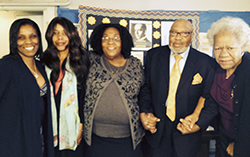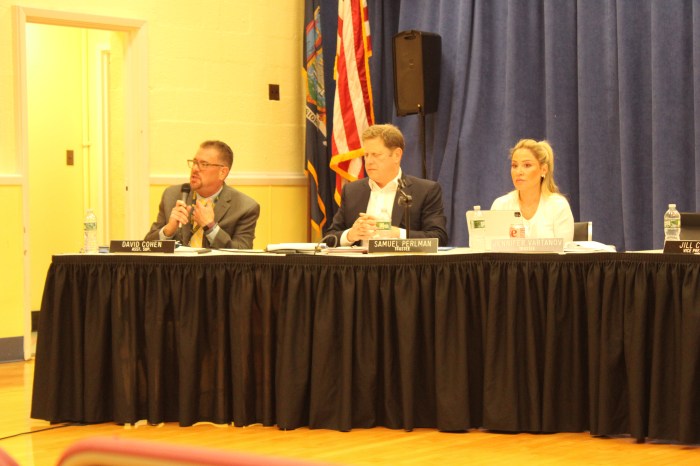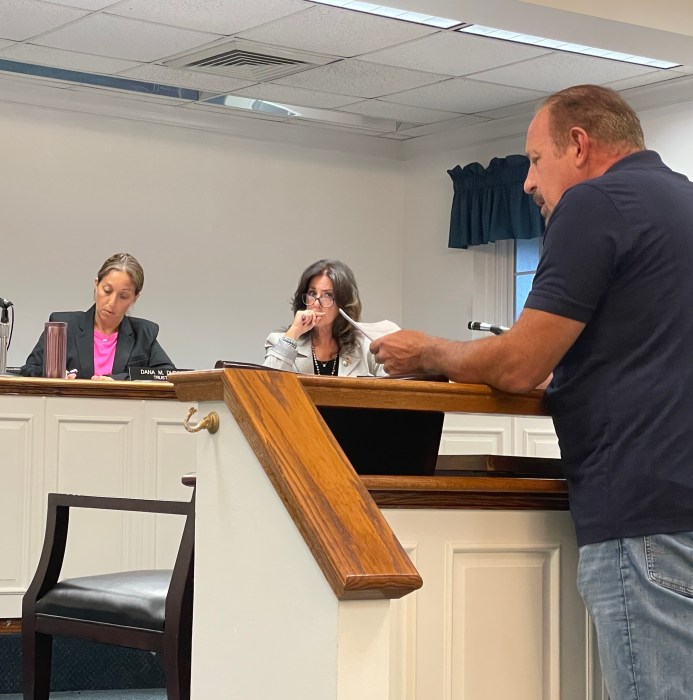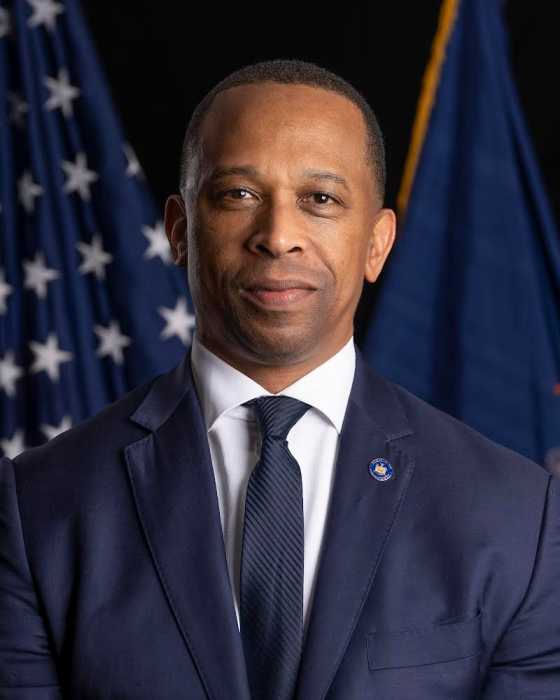February, Black History Month, was celebrated by the Hood A.M.E. Zion Church of Oyster Bay with a series of special events.
“The whole month was inspiring, so I am looking forward to doing it next year,” said Black History-Harriet Tubman Committee Chair Diane Cortes-Evans.
The month included a visit from Assemblyman Charles Lavine, who attended the Feb. 9 service and presented Pastor Linda Vanager with a citation from the NYS Legislature for the church’s work in preserving the Pine Hollow Cemetery, and a lecture by historian Simon Rutledge.
As the worship service on Feb. 23 began, Denice Evans-Sheppard led the congregation in singing the Black American anthem “Lift Ev’ry Voice And Sing,” along with Viola Carter-Green, Cortes-Evans’ mother’s sister.
During the service they sang several Spirituals including: “Wade In The Water” and “I Want To Be Ready,” which was sung by Ida Vanager and Viola Carter. The Rev. Harry D. Vanager gave the Call to Worship and Invocation. The Rev. Shirley Rutledge gave the prayer and blessing of food; remarks were made by Cortes-Evans, and the closing remarks and benediction were given by the Rev. Linda Vanager.
The Black History-Harriet Tubman Committee of the Hood A.M.E. Zion Church of Oyster Bay members were: chairperson Cortes-Evans and co-chair Sandra R. Rogers and: Viola Carter, Westley Grady, Denice Shepphard and Ida Vanager (the Rev. Vanager’s youngest daughter).
Black History Message
Guest speaker Simon Rutledge said that Black History is more than the story of the slave trade, but the history of outstanding African Americans. He told the stories of people who came from different areas and ended up in New York City and eventually came here to Long Island. He said, “Know who you are and be proud.”
Posters set out for the lecture included people of note, including Charles Richard Drew (1904-1950), a surgeon, scientist and teacher; Marian Anderson (1902-1993), a concert and opera singer; Benjamin Oliver Davis, Sr. (1877-1970) an Army officer, educator and government official; Maggie Lena Walker (1867-1914), the first female African American bank president; Ralph Johnson Bunche (1904-1971), a diplomat, U.N. Mediator and winner of the Nobel Peace Prize.

Historian Rutledge said they have a legacy of pride in the lives of: Harriet Tubman (1821-1911), a runaway slave, abolitionist nurse, spy and social reformer; Elijah McCoy (1843-1929), an inventor; Robert Smalls (1819-1915), a Civil War hero and Congressman; James Arthur Baldwin (1934-1987), a famed writer; Frederick Douglass (1818-1895), an abolitionist, orator and author and the first African-American to receive a doctorate from Harvard University; William Edward Burghardt “W.E.B” DuBois (1868-1963), an American sociologist, historian, author, editor and civil rights activist; Carter G. Woodson, Ph.D., (1875-1950), a historian known as the father of Black History, who said, “Those who have no record of what their forebears have accomplished lose the inspiration which comes from the teaching of biography and history.”
Cortes-Evans related the fact that Simon Rutledge spoke at length about the Statue of Liberty and that in his view, the feature that people cannot easily see, “…is the broken chain wrapped around the statue’s feet. Protruding from the bottom of her robe, the broken chains symbolize her free forward movement, enlightening the world with her torch free from oppression and servitude.”
It is his view that it is a commentary on the end of slavery.
As Simon Rutledge’s talk ended with several people asking questions, said Cortes-Evans, there was too much to cover in one talk, although he knew all the answers. He offered to return to give different workshops.
“He was a very good speaker and we will ask him back again. He kept everyone’s attention and got a standing ovation,” said Cortes-Evans.

































